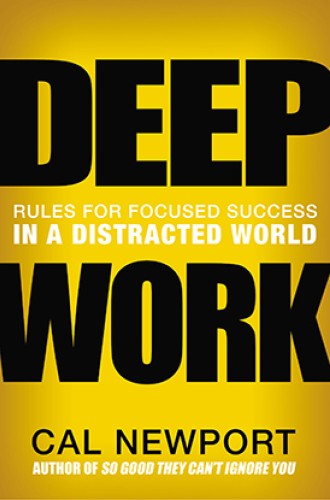Distracted by our own devices
I’ve become the sort of person who checks her phone constantly. I did not have to go this way.
I evolved gradually into the person who checked her e-mail on her phone almost every hour of the day. Who could spend a mindless hour searching for who-knows-what on social media. Who was willing to be interrupted at nearly every moment by a small “ping.” Who consulted the vagaries of the Internet to tell her what to do next.
I did not have to go this way. In college I fell in love with Simone Weil’s awkwardly titled 1942 essay “Reflections on the Right Use of School Studies with a View to the Love of God.” Weil begins with the assertion that studying is an opportunity to cultivate prayer. Prayer “consists of attention,” and studying hones the practice of deep attention. I memorized these lines: “The quality of attention counts for much in the quality of prayer. Warmth of heart cannot make up for it.”
Read our latest issue or browse back issues.
I thought frequently of this essay as I was reading Deep Work, though it has none of Weil’s spiritual intentions. It’s a business and technology self-help book written in the style of a TED talk. But Cal Newport is interested in cultivating the same capacity that Weil writes about.
Newport is interested in how “knowledge workers,” that is, people who are engaged in the thinking professions in a variety of fields, might cultivate better practices of attention. So much about the world compels us to wander around distracted, but truly innovative thinking and problem solving involves what he calls “deep work.”
I recognized myself immediately in Newport’s descriptions of the poor knowledge worker who scans the various screens in her life that connect to vague hopes and purposes. Newport outlines four rules to move away from this driftless state. The first is actually to do deep work, and for that you need time. To spur the movement into deep work, Newport describes four modes of allocating time which involve fairly different lifestyles.
The first mode he calls monastic. Monastic people, in essence, shut themselves off from daily interaction with the outside world so they can concentrate on their work. As a rule, they are not available.
The second mode of time allocation is what Newport calls bimodal. Psychoanalyst Carl Jung exemplifies this mode. He ran a busy psychotherapy schedule and taught classes. But he would go away for a week or more at a time to his “tower”—a cabin at Lake Zurich—where he could read, think, and write without interruption. His office in the tower was so precious that he said, “I keep the key with me all the time; no one else is allowed in there except with my permission.”
The third mode is rhythmic. Every day, you carefully guard deep work time in your schedule. The phone is off; the Internet is off. You work deeply, and then you reenter the world where you can be more freely interrupted.
The fourth mode he calls journalistic. In this one (not for beginners), you grab any moment you can. When you work, you work deeply, but it is not by a set schedule. Each of these modes has its benefits, but all involve deciding how to set aside time in your schedule to work at deeper levels.
In addition to setting aside time for deep work, Newport argues that we must set aside downtime. We diminish our productivity by trying to be productive at every moment, and we often let a form of distraction, the Internet, dominate our entertainment choices. Real downtime is a critical counterpart for deep work. It restores and refreshes the mechanisms that allow for deep work. Essayist Tim Kreider wrote after a period away from his Internet connection: “Idleness is not just a vacation, an indulgence or a vice; it is as indispensable to the brain as Vitamin D is to the body, and deprived of it we suffer a mental affliction as debilitating as rickets.” Newport recommends practices like a “shutdown ritual,” where you officially end the work that could otherwise eat up your leisure time.
Newport also advocates quitting social media, given its ability to take over large swaths of time and the fact that it is by nature a distracted form of attention. He acknowledges that social media can be a useful tool, but he asks readers to consider why they are using that tool and whether it helps them accomplish their true goals.
Newport’s final rule contains methods for rigorously “draining the shallows” of your life. Most useful for me was his proposal about how to use e-mail. To date, my e-mail strategy has been basically: answer it. Newport suggests a much more intentional practice. He recommends slowing down and asking what project each e-mail is engaging you in and then deciding what the most efficient path forward might be. If he gets an e-mail from a student that says, “I’d like to get together to talk about my project,” he doesn’t even answer it. He asks his students to frame requests more efficiently. “Professor, can I come to office hours on Monday to talk about my project?” would get an answer.
But why do all this time management? On the surface, Newport seems to suggest that deep work’s value is “success.” The first half of the book argues that deep work is a precious resource in the knowledge economy. But success does not seem to be as adequate a motivation or outcome for the changes in habit and action that Newport proposes.
Newport approaches the premise of Weil’s essay when he asks his readers to consider what “terrifying longing” would lead them to deep work. He quotes David Brooks: “If you want to win the war for attention, don’t try saying ‘no’ to the trivial distractions you find on the information smorgasbord; try to say ‘yes’ to the subject that arouses a terrifying longing, and let the terrifying longing crowd out everything else.” Newport describes watching one of his professors at MIT:
It wasn’t uncommon to find this theoretician sitting in the common space, staring at markings on a white board, with a group of visiting scholars arrayed around him, also sitting quietly and staring. This could go on for hours. I’d go to lunch; I’d come back—still staring.
This staring strikes me as a form of contemplation. The subject so penetrates the ego that thought and action are both suspended. Weil would call it prayer.
Beyond success, Newport says that the purpose of deep work is eudaemonia, the ancient Greek word for human flourishing. Weil might say that we achieve human flourishing through sacrifice rather than success, through humility rather than achievement, through care of our neighbors rather than maximization of personal potential. But to a large degree Newport and Weil advocate similar means, and those means might lead to precisely the same end: a quality of attention that leads to love. Human flourishing and love are both ends worthy of deep work.







